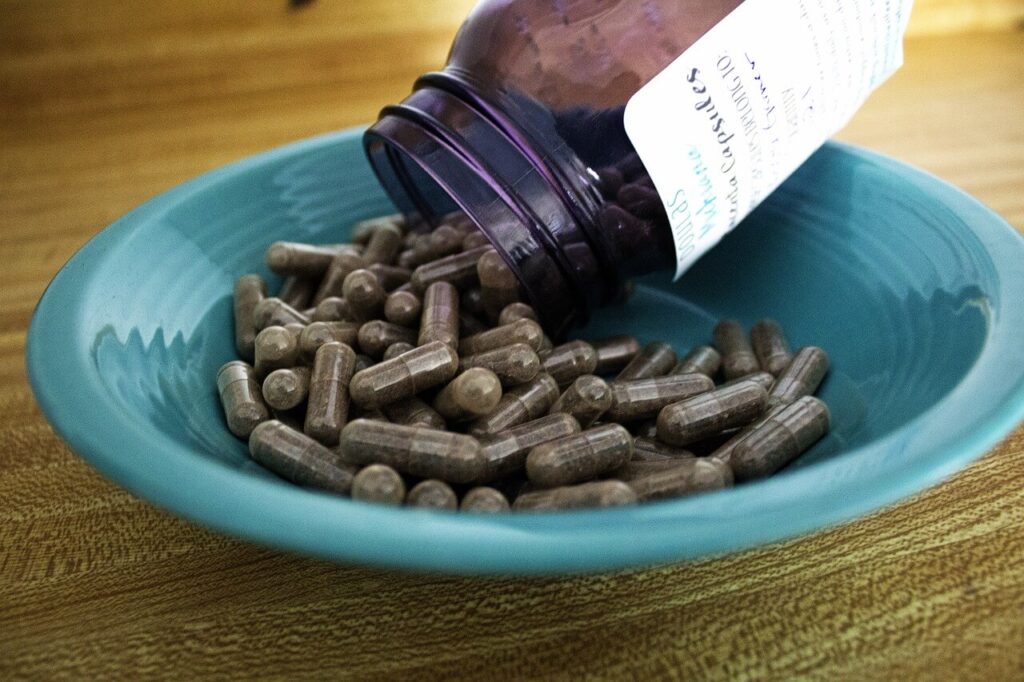
There is this you tube couple I have been following for the past one year—Riss & Quan. They have become quite famous, am sure most of my ladies know them. I have specified on the ladies because the main reason I watch them is because of how the guy treats his woman in an almost “dreamy” way (acted or not 🤭😝)— I know y’all ladies can relate. Around two weeks ago, the couple were blessed with a son, and while I was following Rissa’s Instagram Stories, I found quite a long one describing the process of “Placenta Encapsulation.” After watching the video, with a totally disgusted and cringed face, I decided to embark on my own research on the issue.
First, I conducted an Instagram survey where I asked my followers whether you knew that some women choose to eat their placentas. 62%—including myself—said no, while 38% said Yes. I have to be honest, 38% is quite a large percentage considering I did not know, and neither did I have a clue of such a thing. Fascinated by the results, I embarked on an even deeper research. Why eat the placenta? Does it really have enough benefits to over look the baffling and disgusting idea that it is literally cannibalism?—too harsh of a word? I’m just calling a spade for what it is. Anyway, I believe in cultural relativism so let us keep an open mind people.
Most non-human mammals eat their placentas after childbirth, but most of us humans do not. However, there are some cultures which have consumed the placenta in the past as a form of traditional medicine. Among the Chinese people, the placenta was consumed by elderly people as a form of non-conventional medicine to treat liver and kidney complications. Among Indians, the placenta was eaten by childless women for they believed it helped with fertility (Out of mere curiosity, I would love to know if that worked). However, over the past decade, the consumption of placentas by the mother after giving birth has been extremely popularised. More and more mothers are choosing to consume their placentas for quite a number of reasons. Those who have the strength and guts simply consume it by blending it into an “after-birth smoothie”. However, for the many new moms and doulas who prefer to consume the placenta in a more, “civilized” way, there is, “Placenta encapsulation.”
What is Placenta encapsulation you ask? It is a “bourgee” process where the placenta is cooked and turned into a powder form and put into capsule pills for easier ingestion. The placenta pills are “bourgee” because the mother gets to choose the flavours such as strawberry, vanilla, or pineapple. The entire process is also not cheap as it can cost up to $500 in the U.S. Many mothers who consume their placental capsules claim they feel much better after consuming the tablets but could it just be a placebo effect? Because there are other women who claim to feel sick after taking the pills, while others feel nothing.
The supposed benefits I got from the internet are:
- Improved mood and energy levels to the mother-reducing chances of Postpartum Depression
- Increased milk production for healthy baby
- Pain Relief
- Prevents anaemia
- Enhanced bonding between the mother and the baby
- And reduction of postpartum bleeding
- Boosting both the mother and baby’s immune system
Apart from the many alleged benefits, eating the placenta posses various risks both to the mother and the baby.
- It maybe contaminated with harmful bacteria that may affect both the mother and the child.
- There is not scientific evidence to support the safety and benefits of its consumption.
- It may not be handled with “food-safe” practices either when being eaten as a smoothie or during placental encapsulation which might pose risks after consumption.
Despite there being no scientific evidence to prove the benefits of eating the placenta, the trend of placenta encapsulation is here and many women in the western countries are really embracing the idea. In the spirit of keeping an open-mind I cannot help but wonder, is placenta the “magic” non-conventional treatment that is going to help women make postnatal healing bearable?
Because if all these benefits are really true, I think the African contemporary woman should take a leap of faith here and embrace the trend because, in “childbirth is rosy but roses have thorns too,” we all agreed on just how excruciating the recovery process is.
So, could eating the placenta the solution? Ladies are we boarding?🤔 should we hop on the “after birth smoothie,” or the “placental capsules,” train?
❤❤❤❤
Nyambura Macharia


Girl you can’t stop cooking our minds daily
🤭girl, just giving y’all food for thought 😃😃
I don’t think the title of your article matches the content lol. Just kidding, mainly because I had some doubts after reading the article.
I don’t think the title of your article matches the content lol. Just kidding, mainly because I had some doubts after reading the article.
Your article helped me a lot, is there any more related content? Thanks!
I don’t think the title of your article matches the content lol. Just kidding, mainly because I had some doubts after reading the article.
I don’t think the title of your article matches the content lol. Just kidding, mainly because I had some doubts after reading the article.
I don’t think the title of your article matches the content lol. Just kidding, mainly because I had some doubts after reading the article.
Can you be more specific about the content of your article? After reading it, I still have some doubts. Hope you can help me.
Thank you for your sharing. I am worried that I lack creative ideas. It is your article that makes me full of hope. Thank you. But, I have a question, can you help me?
Merely wanna say that this is very helpful, Thanks for taking your time to write this.
I don’t think the title of your article matches the content lol. Just kidding, mainly because I had some doubts after reading the article.
I don’t think the title of your article matches the content lol. Just kidding, mainly because I had some doubts after reading the article.
Can you be more specific about the content of your article? After reading it, I still have some doubts. Hope you can help me.
Your article helped me a lot, is there any more related content? Thanks!
I don’t think the title of your article matches the content lol. Just kidding, mainly because I had some doubts after reading the article.
Este site é realmente demais. Sempre que acesso eu encontro coisas boas Você também vai querer acessar o nosso site e descobrir detalhes! Conteúdo exclusivo. Venha saber mais agora! 🙂
Thanks for sharing. I read many of your blog posts, cool, your blog is very good.
Pretty nice post. I just stumbled upon your blog and wished to mention that I have truly loved surfing around your blog posts. After all I’ll be subscribing on your rss feed and I’m hoping you write once more soon!
lo2479
ape0gn
Some genuinely nice and utilitarian information on this internet site, as well I think the style and design has got wonderful features.
fhtu71
Can you be more specific about the content of your article? After reading it, I still have some doubts. Hope you can help me.
Thanks for sharing. I read many of your blog posts, cool, your blog is very good.
As a Newbie, I am permanently searching online for articles that can benefit me. Thank you
Your point of view caught my eye and was very interesting. Thanks. I have a question for you.
hhjepz
Wow! Thank you! I permanently needed to write on my blog something like that. Can I include a portion of your post to my website?
Can you be more specific about the content of your article? After reading it, I still have some doubts. Hope you can help me. Тркелу
yhmyzf
Thank you for your sharing. I am worried that I lack creative ideas. It is your article that makes me full of hope. Thank you. But, I have a question, can you help me? binance
Thank you for your sharing. I am worried that I lack creative ideas. It is your article that makes me full of hope. Thank you. But, I have a question, can you help me?
Thanks for sharing. I read many of your blog posts, cool, your blog is very good.
Thank you for your sharing. I am worried that I lack creative ideas. It is your article that makes me full of hope. Thank you. But, I have a question, can you help me?
6ljqbd
htgun5
I don’t think the title of your article matches the content lol. Just kidding, mainly because I had some doubts after reading the article.
Thanks for sharing. I read many of your blog posts, cool, your blog is very good.
Your point of view caught my eye and was very interesting. Thanks. I have a question for you.
Can you be more specific about the content of your article? After reading it, I still have some doubts. Hope you can help me.
8opl4l
j60ru2
s6hqlq
80pqnl
2rb0s9
Thanks for sharing. I read many of your blog posts, cool, your blog is very good.
**mind vault**
mind vault is a premium cognitive support formula created for adults 45+. It’s thoughtfully designed to help maintain clear thinking
i39e1e
Can you be more specific about the content of your article? After reading it, I still have some doubts. Hope you can help me.
we7r6k
yymt1m
Thank you for your sharing. I am worried that I lack creative ideas. It is your article that makes me full of hope. Thank you. But, I have a question, can you help me?
uwfv7k
bohlb0
I needed to send you a bit of note to finally thank you very much yet again about the gorgeous guidelines you’ve provided here. It was quite unbelievably generous with people like you to provide openly all some people would have distributed for an electronic book to get some money for their own end, most notably considering the fact that you could have tried it if you desired. The things additionally acted like the easy way to comprehend the rest have similar keenness the same as mine to know the truth lots more on the subject of this matter. I believe there are a lot more enjoyable occasions in the future for people who scan through your blog.
It’s really a nice and helpful piece of information. I am glad that you shared this helpful info with us. Please keep us up to date like this. Thanks for sharing.
I’ve been surfing on-line more than 3 hours these days, yet I never discovered any interesting article like yours. It is pretty worth sufficient for me. In my view, if all webmasters and bloggers made good content material as you did, the internet shall be a lot more useful than ever before. “Where facts are few, experts are many.” by Donald R. Gannon.
Hello I am so delighted I found your website, I really found you by accident, while I was searching on Bing for something else, Anyhow I am here now and would just like to say cheers for a remarkable post and a all round entertaining blog (I also love the theme/design), I don’t have time to read through it all at the moment but I have bookmarked it and also added in your RSS feeds, so when I have time I will be back to read a lot more, Please do keep up the great job.
Amazing blog! Do you have any tips and hints for aspiring writers? I’m planning to start my own website soon but I’m a little lost on everything. Would you recommend starting with a free platform like WordPress or go for a paid option? There are so many options out there that I’m totally overwhelmed .. Any suggestions? Cheers!